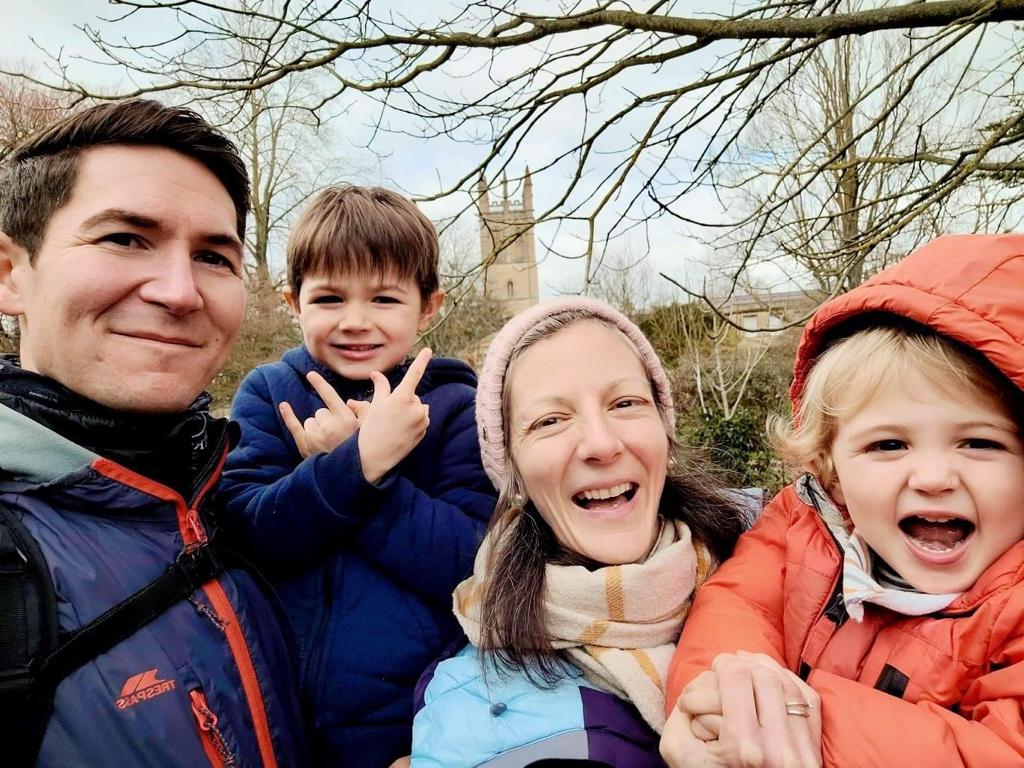
My 2.5-year journey with translocation renal cell carcinoma
April 30, 2024
This is a guest post by Dawn Dyson, 37, who was diagnosed with translocation renal cell carcinoma in 2022. Dawn…
Read More
This is a guest post by Michele Tate. She is diagnosed with HLRCC and advocates for greater awareness and research into this rare genetic condition.
As we celebrate 2024 Black History Month and Rare Disease Day, I’d like to share my story and stress the need for early detection by screening all young women, regardless of race, who present with early onset of uterine fibroids for hereditary leiomyomatosis and renal cell cancer (HLRCC). Uterine fibroids could be utilized as a biomarker for HLRCC. I’d also like to encourage Black women to advocate for themselves and their families in the healthcare setting.
Just over 20 years ago, HLRCC was identified as a rare hereditary condition driven by germline mutations in the fumarate-hydratase gene (FH). HLRCC is associated with the development of multiple leiomyomas – smooth muscle tumors – on the skin and in the uterus (fibroids) as well as an aggressive form of kidney cancer. It is important to note, not all people diagnosed with HLRCC develop kidney cancer.
In 2018, I was diagnosed with HLRCC following a radical nephrectomy although my story really began before my first uterine fibroid surgical intervention at age 20. I underwent two additional interventions for uterine fibroids, one in 2004 and a hysterectomy in 2011.
At the time of my second surgery to remove the uterine fibroids in 2004, HLRCC had been identified as a syndrome, with many institutions screening women who presented with a history of early-onset uterine fibroids. However, I was not alerted and screened despite having uterine fibroids. Unfortunately, the same was true in 2011 when I had my hysterectomy.
In the Black community uterine fibroids are so common that, despite my history and age, the pathology panel that was run on my tissue at a major institution did not include germline gene deficiencies commonly tested on women with a history of early onset uterine fibroids.
80% of Black women and 70% of White women develop uterine fibroids at some point in their lives. 80% of all women with an FH deficiency have fibroid tumors and may pass HLRCC to their children.
There are recent studies documenting a higher prevalence of HLRCC and other FH mutations in people of African descent than other ethnic groups. Within reported mortality rates of kidney cancer patients, Black women and men have the highest.
With the increased awareness of the profound racial disparities faced by the Black community in the healthcare setting, I wonder if the high mortality rate is in part reflective of a community that is not regularly being offered genetic testing or molecular sequencing to understand tumor histology? Studies have shown genetic differences in the Black population which makes early detection, molecular profiling and clinical trial access important. There have also been cases of women whose fibroids were tested that lead doctors to being able to correctly diagnose their family members who had kidney cancer but hadn’t been offered genetic testing.
Hopefully, stories like mine and fellow advocates and organizations pushing for increased research and funding for HLRCC and other types of rare kidney cancers will not only bring greater awareness to these life-altering conditions, but also encourage healthcare systems to take the necessary steps to elevate known barriers, dismiss biases and provide the best care possible to all patients.
Self advocacy is critical for all rare disease patients, but especially for Black women. A rare disease diagnosis is overwhelming, and because it is rare, doctors who have not seen it may give poor advice. If you know something is wrong in your body, keep asking questions and seek the assistance of a patient advocate who can help you navigate the system to get the answers you need. It’s also important to have someone with you when you go to major doctor appointments to listen, take notes and to keep you on track. Lastly, to empower your network share information you come across. You never know who may be silently suffering from an unexplained illness or know someone who is. If you hear of anyone who developed uterine fibroids while they were young, recommend they share information about HLRCC with their gynecologist and request a biopsy looking for the FH mutation to rule out HLRCC which in itself would be life changing for them and their families if their pathology comes back positive. The good news is early detection saves lives!
KCA-funded research shows how family genetics impact kidney cancer
Trans-ethnic variation in germline variants of patients with renal cell carcinoma – Cell Reports
HLRCC Quick Facts – HLRCC Family Alliance